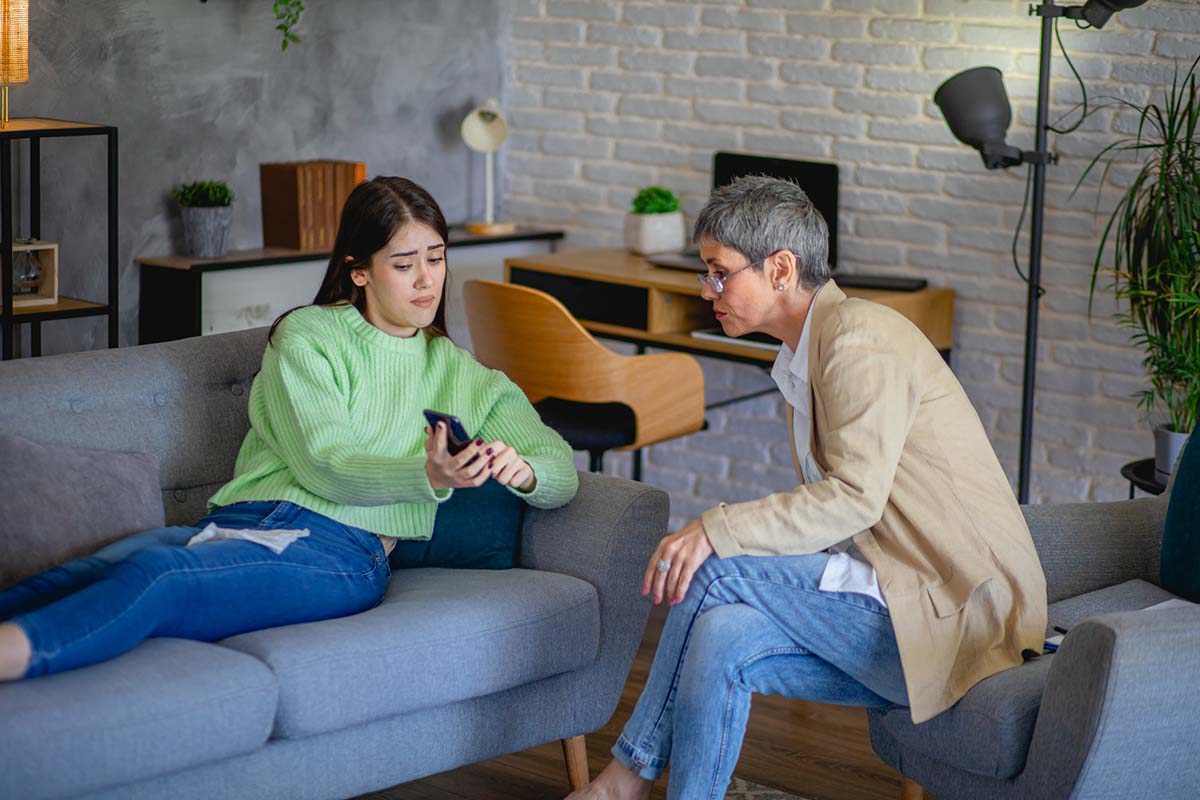
Youngsters get all kinds of data from social media. Some good, some not so good.
And identical to adults, a whole lot of the knowledge (and misinformation) they’re seeing is about well being. As extra individuals share their private tales of neurodivergence, psychological well being, migraines, dietary deficiencies, food regimen sensitivities, and different medical situations, these conversations are shifting into the open. And the flood of this content material is main teenagers to a central query: Do I even have this situation?
This has led to a wave of youngsters in search of a proper prognosis for situations they’ve already begun to establish with, usually based mostly on obscure signs with a wide selection of attainable causes. For folks, it will possibly depart them uncertain of what to do subsequent.
Any time your baby shares a priority about their well being, it is necessary to take it severely. Even when it is on development and would not appear in line with what you have seen from them.
UVA Well being Kids’s medical psychologists Emily T. O’Gorman, PhD, and Evan J. Anderson, PhD, share their recommendation for navigating healthcare info on social media.
Is there worth in social media for psychological well being?
O’Gorman: I do like seeing psychological well being being talked about extra. There’s some destigmatization on social media that’s in all probability finally good. If these are issues that we’re capable of discuss, then persons are going to get the assistance that they could want.
Do the advantages outweigh the dangers? I do not know. The chance of social media will be a lot broader than simply self-diagnosis. There are a whole lot of official dangers and issues there.
There’s additionally somewhat little bit of a hazard in labels and over-attaching to them and letting that grow to be you as an individual. However there’s nonetheless some profit to having the ability to settle for all of the components of your self.
What or whom are you able to belief on social media?
O’Gorman: It’s arduous since you often don’t see individuals’s credentials on TikTok. Have a look at all social media with a wholesome dose of skepticism. Encourage that skepticism in your teen.
I encourage individuals to make use of respected sources for psychological well being info. This consists of:
A Trusted Supply: Your Pediatrician
Your pediatrician might help with correct medical info, testing, referrals, and all the things it’s essential to transfer well being issues offline.
How a lot medical misinformation is on the market?
Anderson: Trauma info is, by far, the best offender of misinformation on social media. That’s adopted shortly by autism spectrum dysfunction and ADHD. We now have information that exhibits a 3rd of the knowledge on psychological well being situations isn’t scientifically sound.
There is a saying within the autism neighborhood that when one individual with autism, one individual with autism. When individuals discuss their expertise with autism in additional generalized international phrases on social media, that may simply implant misinformation.
Why are youngsters extra more likely to fall for misinformation about psychological well being?
Anderson: It is about novelty-seeking. When you’ve gotten elevated engagement with social media or video video games, youngsters’ skill to concentrate to “boring content material” is lowered. They search simplified, short-form info. That turns into their main supply of data. They do not actually have the instruments to do an extended type of analysis as a result of they do not have the eye span for it. That info is not novel and easy sufficient.
What sorts of hurt can come from misinformation about psychological well being?
Anderson: Misinformation tends to get extra engagement. From a social media enterprise mannequin, that is exactly what you are after. And so, social media corporations don’t have any motivation to filter out misinformation.
A 3rd of individuals change the administration of their prognosis based mostly on info they’ve heard on-line. That is not a small quantity. Solely 50% of these individuals test with their suppliers first. And that is simply the those who we all know.
What’s the good facet of social media with regards to psychological well being?
O’Gorman: Do not use social media for the solutions. Use it for questions. Permit it to spotlight blind spots and issues that you have not considered earlier than. Use it to collect info that you are able to do extra studying on. And by no means change your conduct based mostly on one thing on TikTok with out checking it out with a healthcare supplier first.
How can dad and mom assist their youngsters navigate psychological well being misinformation on social media?
Anderson: Social media ought to be a collaborative effort between the kid and their caregivers. Center college youngsters want supervision so you’ll be able to have discussions, and they also aren’t uncovered to too many fringe concepts.
As youngsters become old, they want extra independence as a result of finally, they’ll be on their very own with social media.
The primary predictor of adoption of this sort of misinformation is a number of exposures to it. If a child goes down a rabbit gap, they’ll undertake a bit of misinformation as true as a result of they’ve seen it usually. That’s why you actually ought to be checking in on social media and telling them you’re going to test in.

